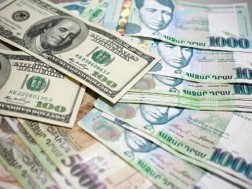Economist Agasi Tavadayan, author of the tvyal.com project, identifies the strengthening of the Armenian dram, the rising cost of living in Yerevan, and capital outflow as the main reasons for the slowdown in Armenia's IT sector.
"The dram's appreciation is hitting export-oriented industries hard, including IT," he states, recalling that in 2022, many local IT companies went bankrupt due to currency changes. However, this overall decline was masked by a significant influx of foreign specialists, primarily from Russia.
Nevertheless, the dram continued to strengthen in early 2024 (from 404 to 386 drams per dollar), leading to new waves of bankruptcies among IT companies. Unlike the previous period, there is no longer an influx of new specialists; on the contrary, many IT professionals have started leaving the country. Tavadayan attributes this not only to the currency's appreciation but also to the expiration of key tax incentives that previously supported the sector's development.
"The reduced 10% income tax rate for certified IT companies will cease on December 31, 2024, and profit tax incentives already ended on December 31, 2023. The expiration of these incentives could severely impact the competitiveness of Armenia's IT sector, especially given that neighboring Georgia offers more attractive conditions—such as a 1% tax rate for IT companies," Tavadayan explains.
The economist also emphasizes that the sharp rise in the cost of living in Yerevan reduces Armenia's attractiveness for foreign specialists. "In 2022–2023, rental prices in Yerevan were higher than in Moscow, significantly diminishing the chances of attracting long-term specialists," he notes, adding that these changes undermine the sector's sustainability.
Tavadayan argues that the current situation requires a reassessment of the IT sector's development strategy. In his view, the surge in specialist inflow in 2022 was temporary, and long-term policy cannot be based on this. He proposes several key measures that could stabilize the situation and ensure the industry's sustainable growth in the future:
-
Extension of Tax Incentives for IT Companies: The economist believes the government should reconsider the decision to end tax reliefs. He suggests extending income tax and profit tax benefits to support the sector's development and increase its competitiveness compared to neighboring countries' offerings.
-
Creation of Special Economic Zones with Low Taxation: Tavadayan proposes leveraging Armenia's strategic location by establishing zones with simplified taxation for IT companies, which could attract foreign specialists and export-oriented companies.
-
Development of a Long-Term Sector Strategy: In his view, the regulatory approach should be based on stable support rather than temporary solutions. The economist emphasizes that tax collection should not become an end in itself, especially in high-tech and export-oriented sectors, where stimulating long-term economic growth is more important.
-
Improving Living Conditions for Foreign Specialists: Addressing disparities in housing costs and other living expenses in Yerevan is necessary to enhance the country's appeal on the international stage.
In conclusion, Tavadayan noted that the coming months will be crucial for the future of Armenia's IT sector.
















